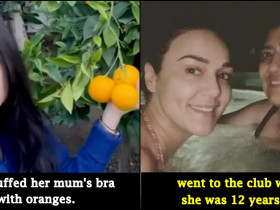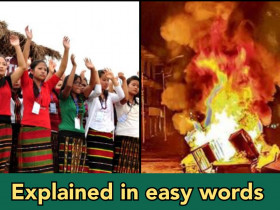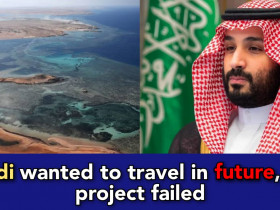No products in the cart.
Indian student invents Goggles for blinds to see
Technology has been providing solutions to many conundrums over the years and the scientists are still figuring out what can be done to make living a lot more easier than what it is currently. At the same time, some scientists have been working hard vigorously over the years to improve the lives of the disabled ones, who have been deprived of some or the other basic body part.

This is not a story of any established scientist or any other experienced technological expert. This is the story of a 11th standard student from Arunachal Pradesh Anang Tadar, who managed to develop goggles named “Goggle For Blind”(G4B), which will help the visually impaired one’s to navigate themselves. The technology, which is based on echo location is pretty much similar to what bats use for navigation.
“These days there are so many obstructions both inside the house and outside. The G4B will help blind people move around a lot easier,” Tadar told journalists in Itanagar. According to Anang, G4B can be used to alert the person about the nearby objects and by doing so that person will no longer have to use a stick.
G4B was adjudged the most innovative at the regional level science festival, which concluded in Guwahati recently. Anang always had a love affair with machines and enjoys making robots and gadgets at his home. If this innovation of Anang proves to be a successful one and if this one can be mas produced, how great a help it can be for the visually impaired.
Anang said to the Chief Minister of Arunachal Pradesh Pema Khandu on Friday that he was motivated to develop the product after he saw a blind girl a few years ago. Tadar had participated in the national level science exhibition earlier this month at the Rashtrapati Bhawan in New Delhi organised by the National Innovation Foundation (NIF).
Acknowledgements for this incredible innovation from this youngster have been coming in from around the world. The Arunachal Pradesh Government has assured full support to Anang financially, which might help him to not only market his product, but also improve it further more by fine tuning it. The initial product is a bit bulky, so the aim is to make it lighter.
According to a release by the Arunachal Pardesh government, impressed with the innovation, UNICEF has asked Tadar to develop few more prototypes. Anang makes a strong case for the cliche “Age is just a number”. I mean, seriously, what would you be doing in your 11th standard? Lets hope he takes this product further in every aspect.












